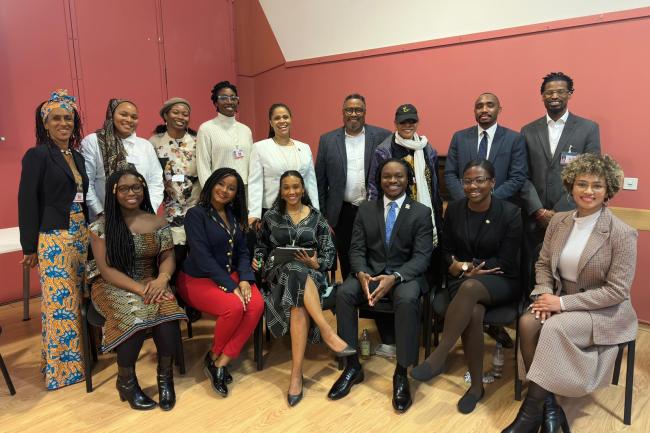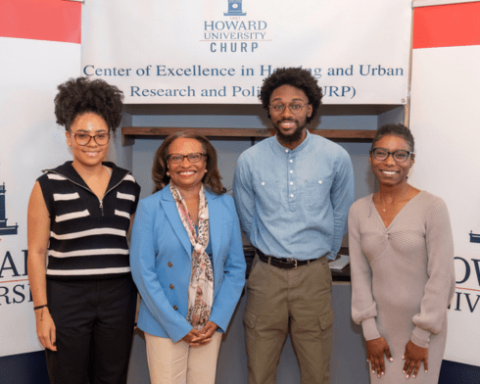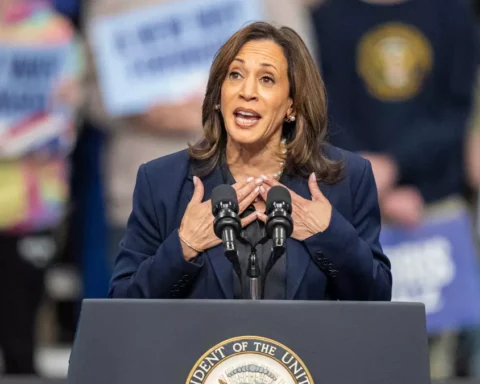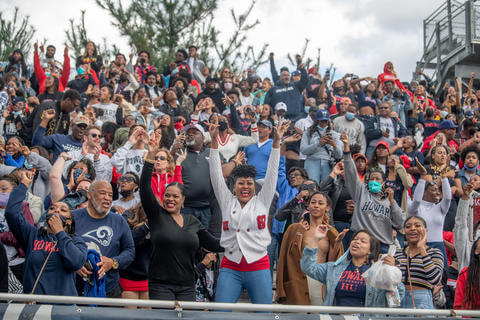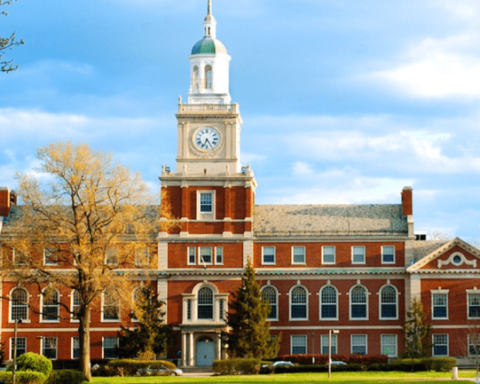By Brittany Bailer
Justin Hansford, executive director of the Thurgood Marshall Civil Rights Center and member of the U.N. Permanent Forum of People of African Descent, recently traveled to Geneva, Switzerland for the forum’s first annual meeting. The center recently sponsored 12 law students from Hansford’s Movement Lawyering Clinic to go on the trip and present their semester-long research before the U.N. Human Rights Council.
The presentation was titled “Acknowledging Black America in the Discussion for Sustainable Development Goals: HBCUs Leading the Way.” The student research gauged the treatment of Black people in the U.S. using the U.N. Sustainable Development Goals (SDGs), benchmarks that the U.N. has deemed necessary for a sustainable community. Among these goals are gender equality, quality education, clean water and sanitation.
The forum was established in 2021 to give Black people around the world a collective voice on the world stage. Members of the first delegation represent Sweden, Bahamas, Colombia, Egypt, US, Cameroon, China, Cost Rica, St. Lucia, and Kenya. It will act on behalf of people of African descent as an advisory role to the U.N. Human Rights Council. The work done by the U.N. Permanent Forum on Indigenous Issues, established in 2000, has secured reparations for many indigenous people in Canada. Hansford hopes the new forum can achieve similar success.
Amma Boateng, a 2L student, researched her hometown of Newark, New Jersey. “New Jersey is one of America’s richest states, but Newark is one of the poorest cities, in terms of household income, in the state. So, I looked at what factors are going into those numbers. I focused my presentation in Geneva on education and health and on the success of the Newark Debate program in improving student literacy and academic confidence. I discussed Newark’s rapid response to the lead water crisis which is now informing how other urban centers are addressing their eroding lead pipes,” said Boateng. “I really appreciated the opportunity to go to Geneva in my second year of law school. It was one of those experiences I didn’t think I’d have until well into my career, so I was really grateful I was able to do it through the Movement Lawyering Clinic.”
Another student, 3L Charkera Ervin, did her research and presentation on Pittsburgh. “Pittsburgh has been referred to as America’’s most affordable city several years in a row. Also, during that same period, the same data showed that it was one of the worst cities in America to live in for Black women,” said Ervin. “That showed me that it was important to understand specifically what the Black community is going through, instead of just looking at the general numbers and assuming that average of conditions experienced in a city apply to everyone.”
The students found that many of the issues uncovered through their research were similar, emphasizing the idea that the US still has a long way to go to address the inequalities faced by people of African descent. Hansford plans to expand the efforts of the Movement Lawyering Clinic with his position at the U.N. He will bring more students to New York City in May 2023 for the forum’s next annual meeting. He hopes that this semester, students will be able to host in-person town hall meetings in their respective cities and that their suggestions will help inform the UN on how to address racial inequality around the world.
“We’re very proud of our clinic and the work our students have done and continue to do. They’re the future leaders of not just Black America, but America and the global community,” Hansford said at the conclusion of the presentation.

